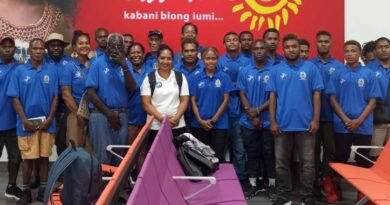Tourism to Help Pacific Growth Rebound in 2022, Says ADB Report
The economies of the Pacific are set to rebound in 2022, according to the latest issue of the Asian Development Bank’s (ADB) Pacific Economic Monitor (PEM) launched today.
While the ADB report downgraded the Pacific region’s growth forecast to -0.6% in 2021, the subregion is forecast to have 4.7% growth in 2022 as wider vaccination against the coronavirus disease (COVID-19) permits borders to progressively reopen. This is expected to boost trade and tourism, particularly in the Cook Islands, Fiji, and Vanuatu. An improved outlook for the extractives sector in Papua New Guinea is also poised to contribute significantly to this recovery.
“As the Pacific region gradually reopens borders, safeguarding health, resuming safe travel, strengthening economic management, and promoting fiscal sustainability will be key to ensuring a resilient recovery from COVID-19,” said ADB Director General for the Pacific Leah Gutierrez.
The PEM says that reopening to tourists vaccinated against COVID-19 is vital for the tourism outlook. Tourism to Pacific destinations has remained restricted, with visitors mostly coming in through travel bubble arrangements with bilateral partners. However, these arrangements had to be suspended amid risks related to the global surge in COVID-19 cases because of the Delta variant. Sustainable resumption of safe travel will be critical for near-term tourism in the Pacific. In turn, this will depend on progress in vaccination rollouts, which has been uneven, with near-universal coverage of eligible populations in the Cook Islands, Nauru, Niue, and Palau contrasting with relatively slow uptake in Melanesian countries.
The PEM explores other country issues and policy themes critical to mitigating risks to the Pacific’s recovery. It discusses sustainability of public finances through fiscal consolidation in the Cook Islands and state-owned enterprise reforms in the Marshall Islands and Palau. Other articles highlight specific factors to economic recovery, such as female labor participation in Fiji, measures to improve labor mobility in Kiribati and Tuvalu, and addressing the burden of non-communicable disease in Niue, Samoa, and Tonga. The PEM also examines issues related to the sustainable management of fisheries resources that are significant across the subregion.
The PEM’s policy briefs examine key issues with critical implications for the Pacific’s broader economic recovery from the COVID-19 crisis. A contribution from the Lowy Institute forecasts the time it will take Pacific countries to vaccinate their populations and warns that an unequal vaccine rollout will have lasting implications for the region’s development. Another contribution from the Private Sector Development Initiative explores the prospects for tourism after COVID-19 and how reframing tourism aims and targets, while incorporating sustainability indicators, could improve understanding of tourism as a strategy for growth. The third policy brief discusses the issue of domestic resource mobilization and its role in making public finances sustainable in the Pacific.
ADB is committed to achieving a prosperous, inclusive, resilient, and sustainable Asia and the Pacific while sustaining its efforts to eradicate extreme poverty. Established in 1966, it is owned by 68 members—49 from the region.
SOURCE: ADB



